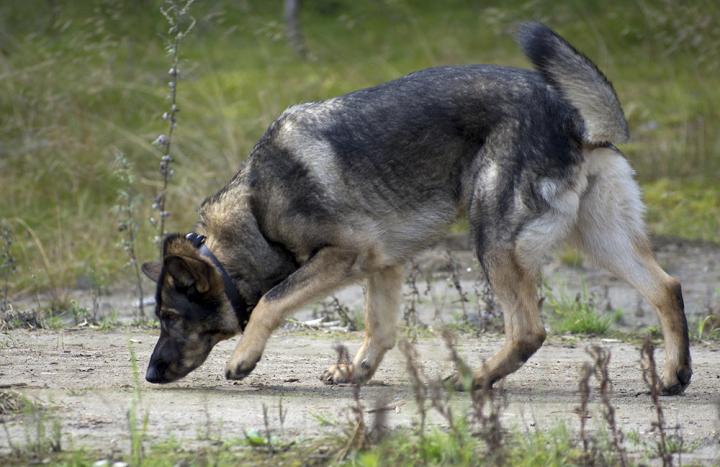Dog study links genetics to behavioural traits
Complex behaviours in dogs are influenced by genetics, research has found.

A large-scale study of dogs has given valuable insight on genes linked to common characteristics.
Research into German shepherds found that some of their behaviours, such as chasing, playing with humans, and fear of loud noises – were influenced by genetics.
Researchers from Roslin recruited more than 700 dogs of the same breed for their study, which sought to find links between DNA and commonly exhibited traits.
Their results could inform breeding for desirable traits or management approaches to minimise problem behaviours.
Broad recruitment
Scientists contacted German shepherd owners around the UK with the help of the Kennel Club and breed associations and recruited other dogs by visiting dog shows such as Crufts.
They also worked with the Swedish army’s established dog breeding programme to bring in more animals to their research.
Scientists worked with army handlers and traced the owners of dogs that were no longer in army care.
Participating dog owners took a saliva swab from their pets, and completed a questionnaire – aptly named Q-BARC – detailing their animals’ behaviour, lifestyle and household.
The results were combined in a statistical model that sought to investigate genetic links to behaviour.
As anticipated, the researchers found that many genetic variants with small effects were linked with behaviour rather than a few variants with large effects. Furthermore, a number of environmental influences such as training levels were associated with the traits.
Behavioural genes
Some regions of DNA highlighted by the study contained genes previously linked to behaviour in other species.
For example, a region of the genome associated with touch sensitivity – mainly shown by fear or aggression towards grooming – contained a gene previously linked to skin sensitivity in mice.
The study built on previous work with Labrador retrievers, which also found that many environmental and genetic influences were associated with behaviour.
However, the genetic regions associated with behaviour in German shepherds were different from those seen for Labradors.
The outcome, published in the journal Heredity, demonstrates the usefulness of genetic studies in dogs, and the value of research that focuses on one breed.
People and dogs have enjoyed a long, mutually beneficial relationship. As social animals with complex personalities, there is much to be gained from understanding what influences dogs’ behaviour.
** The Roslin Institute receives strategic investment funding from the Biotechnology and Biological Sciences Research Council and it is part of the University of Edinburgh’s Royal (Dick) School of Veterinary Studies. **
Related links
Behind the paper – a Nature Ecology and Evolution blog
Heredity podcast - Good dog, bad dog - is it all in the genes?


